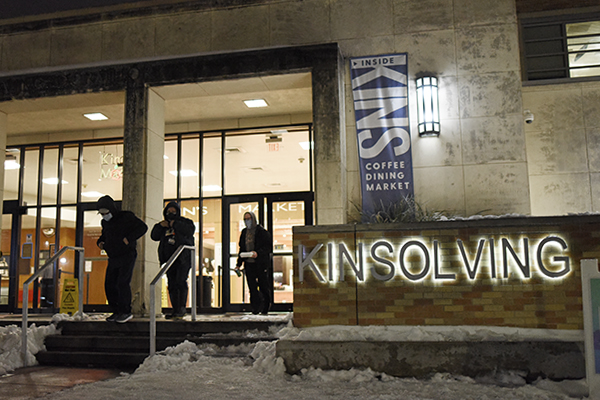Editor’s Note: This story includes sources whose names have been changed to protect their employment. This story first appeared in The Daily Texan's February 26 print edition.
As the pipes burst at the Honors Quad on Feb. 19 , a resident assistant grabbed a screwdriver from the front desk. He rushed to the second and third floor bathrooms where toilets were flooding to pop open the tops and fix the pipes.
“It was exhilarating and exhausting,” Andrew said. “That's when the reality started to kick in that things are getting bad.”
As roads iced over and power went out across Austin, many University Housing and Dining staff were unable to safely travel to campus. With a higher demand for staff across the University, RAs were asked to work at the dining halls and open warming stations, while still assisting their residents.
“We were all pitching in as much as possible,” Andrew said. “It was hectic … we were just running on pure adrenaline.”
Andrew said he served students food at the dining hall, fixed two toilets and helped his residents find food near campus. He said emotionally processing the historic event was “taxing and draining.”
“The idea of having to be in that mentality of, ‘This is an emergency, and we always have to be ready for the next emergency,’ was a lot,” Andrew said.
Aaron Voyles, director for residence hall operations, said RAs are a part of UHD’s crisis response. He said this role was communicated to them through their work agreement and training process.
Voyles said UHD updated RAs as they received more information about the weather. On Monday night, after realizing the scope of RA duties, Voyles said UHD decided to pay RAs an additional $8.25 an hour for extra shifts on top of their monthly stipends.
“In some cases, something like dining might have been something they didn't have any experience with, but (they) took it on with a good attitude and really helped us support all the students who were going through such a trying time,” Voyles said.
Resident assistant Sally said she was trained for emergency situations such as fires but not for taking on additional roles such as handling food or working cash registers. On Feb. 17, Sally said she didn’t take down student information at the dining hall cash register, which caused tension between the staff.
“I was charging people, (which) made me even more anxious because I could sense people being upset with me,” Sally said. “I felt like I was letting my fellow students down.”
Sally said RAs were asked to work in close quarters with one another in the dining halls, and the risk for contracting COVID-19 was significantly higher. She said RAs should have been paid more for this commitment.
Working in the J2 dining hall for hours at a time, RA Jane said there weren’t any accomodations in place for her chronic nerve pain. When serving students, she said she had to take bottled drinks from vats of ice water, and this drop in temperature made her nerve pain worse.
“I was literally crying by the end of the night. They had me plunging my hands into ice water,” Jane said. “I (was also) carrying heavy things, (and) both were not good for me.”
Jane said she found out she had to work at the dining hall 10 minutes before her shift. She said she received minimal communication from UHD throughout the week.
“They needed to fulfill this need, and they were going to do it by whatever means possible,” Jane said. “They didn't really care about us as staff.”
Despite feeling exploited as an employee, Sally said she can’t afford to quit her job as an RA.
“I was very tired (and) very stressed,” Sally said. “On top of doing RA stuff, I also helped with some mutual aid things, and that was very draining because we made a lot of deliveries. By the end of the weekend, I was in shock that that was even a thing that we had to experience here.”




















